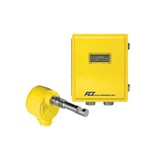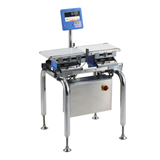During 2009, Australia's brand took a beating in industries as diverse as wine, wool, and international education.
Australia's wine exports are worth $2.4 billion and account for about 8.1% of total global wine exports. Historically, Australian wine has been attractive to overseas markets for its quality and price. This has changed, however. The growing output by new low-cost wine producers, like Chile, and the appreciating dollar have reduced the ability of Australian wine to compete on price.
Now quality is under threat. Wine producers are suffering from an oversupply of grapes and unfavourable weather conditions resulting in a poorer quality product. Added to this is declining global demand. These conditions are leading to the production of cheaper, poorer quality, mass-produced vintages, undermining Australia's reputation as a high-quality wine producer.
Regaining and maintaining a consistent reputation for quality wine is now the major challenge for Australian wine producers. The industry is expected to rise to the occasion. While export revenue dropped by nearly 18% in 2008-09, IBISWorld forecasts that exports will achieve a small recovery in 2009-10.
Like wine, wool had a tough 2009 as well. Australia is the world's largest producer of wool. While Australia has long been associated with the production of high-quality wool, the importance of this industry and the value of wool exports have been steadily declining.
In 2009, wool production fell by around 10% reaching an 80-year low. Behind this decline was a shrinking sheep flock, as drought and weak world wool prices took their toll. Also damaging the industry is a campaign by some high-profile international groups to end the mulesing of Australian sheep.
During 2009, the list of global retailers joining the boycott of Australian wool grew as farmers struggled to implement alternatives to current mulesing practices. The Australian wool industry is expected to continue to slide as sheep farmers turn from wool production to sheep meat production in response to stronger prices for lamb and mutton.
Australia's higher education sector, which has benefited from over $8.1 billion per year in tuition fees from international students, incurred bad press in 2009 as well. Recent challenges to Australia's reputation as an education provider have emerged, including serious issues regarding the regulation of private colleges in the Vocational Education and Training (VET) industry and concerns about the safety of Indian students. India is Australia's second-largest market for education exports.
In addition to these factors, the high value of the Australian dollar has dampened demand from many key export markets. In 2009, the combination of these factors resulted in enrolments from India plunging by 46% and those from Korea, Brazil and the United States each dipping by about 20%.
While the immediate future may be rocky for Australia's education exports, strong enrolment in VET and English Language Intensive Courses for Overseas Students courses – popular as a starting point before further higher education study in Australia – bode well for the long-term.
Furthermore, despite these troubles, exports are expected to be an average of 10.7% per year over the five years to 2010. IBISWorld forecasts the coming five years will see slower but still strong revenue growth averaging 6.7% a year.
















